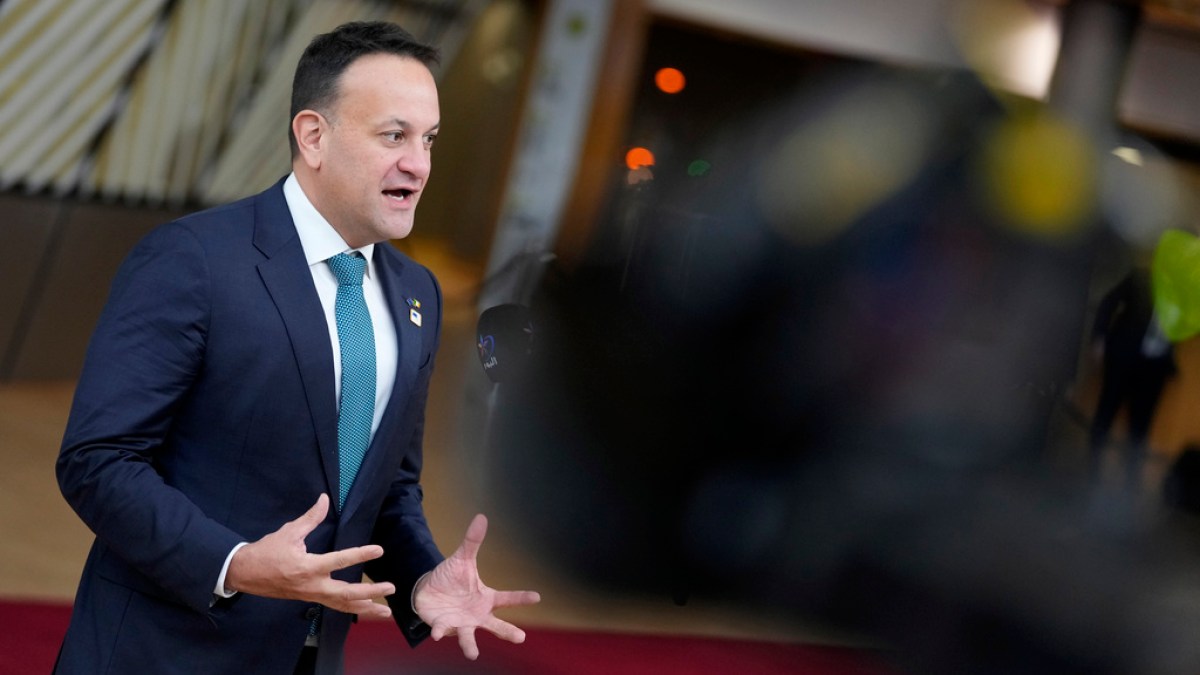Ireland’s prime minister urges EU leaders to call for Gaza ceasefire
Irish Prime Minister Leo Varadkar says there is ‘some truth’ to accusations that EU employs a double-standard on Gaza.
A growing number of countries in the European Union have expressed support for a humanitarian ceasefire in the Israel-Hamas war as Israel’s assault on Gaza plunges the Palestinian territory into a dire humanitarian crisis.
In remarks on Tuesday at an EU summit focused largely on Ukraine, Irish Prime Minister Leo Varadkar urged his colleagues to take a firmer stance and call for an end to the fighting between Israel and the Palestinian armed group Hamas in the besieged Gaza Strip.
“I think the European Union has lost credibility because of our inability to take a stronger and more united position on Israel and Palestine,” Varadkar said.
“We’ve lost credibility at the Global South, which actually is most of the world, because of what is perceived to be double standards. And there’s some truth in that, quite frankly.”
Before the summit, Varadkar and the prime ministers of Spain, Belgium, and Malta wrote to European Council President Charles Michel asking him to host a “serious debate” about the Israel-Hamas war and the “humanitarian catastrophe unfolding in Gaza.”
“We must call urgently for all the parties to declare a lasting humanitarian cease-fire that can lead to an end of hostilities,” the four leaders wrote.
The comments came several days after a large majority of nations represented at the United Nations General Assembly voted in favour of a resolution calling for a humanitarian ceasefire and the number of Palestinians killed in Israel’s assault on Gaza passed 18,000, most of them women and children. The resolution passed with 153 nations in support, 23 abstaining, and 10 voting against it.
In Tuesday’s UN vote, 17 EU countries were among those that backed the call for a ceasefire. In October, only eight had backed a resolution calling for a truce.
Varadkar insisted that a ceasefire could lead “to a new peace process and Palestinian statehood, which is the only way to secure justice and security for everyone living in the region.”
Spanish Socialist leader Pedro Sánchez, whose country currently holds the rotating presidency of the Council of the EU, backed his Irish colleague.
“Europe has to speak out … in a clear, strong, firm and unified voice,” he said.
The current round of fighting began on October 7 when Hamas launched an attack on southern Israel that killed about 1,200 people, mostly civilians, and took about 240 others captive.
Israel responded with a devastating assault on Gaza, bombarding the territory and launching a ground offensive, claiming that it seeks to topple Hamas.
The Hamas attack was widely condemned, and Israel received strong international backing for its war against Hamas from the United States and several European countries.
But as the Israeli assault continued, leading to dire humanitarian conditions and displacing more than 80 percent of Gaza’s 2.3 million residents, some allies have tempered their support with growing warnings about the toll on civilians.
Western countries have also been accused of employing a double-standard, chastising Russia for violations of international law during its invasion of Ukraine but relatively muted when faced with similar acts by Israel.
Speaking on Tuesday, US President Joe Biden said that Israel risks losing support due to “indiscriminate bombing” in a rare moment of sharp criticism.
But despite mounting international pressure, Israel has shown no signs of scaling down its fighting in Gaza, where UN officials have described conditions as “hell on earth”.
On Thursday, Israeli Defence Minister Yoav Gallant said that the fighting in Gaza would last “more than several months”.




